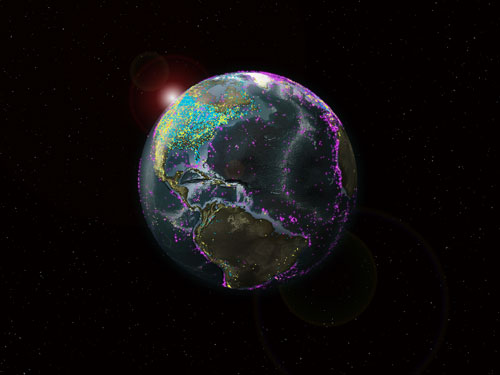- Home
- Science Introduction
- Integrative Activities
Integrative activities
Many issues of concern to society cut across the specific topics addressed by our working groups and benefit from being addressed with an inclusive approach. Cross-topical integrative activities will provide a format in PAGES dedicated to facilitating scientific exchange, synthesis, and outreach.
Each activity will cut across several of PAGES’ topical working groups and build on their results and specialist expertise at dedicated workshops and in synthesis and outreach projects. Complementary scientific expertise on modern processes and future projection research will be included from the networks of Future Earth and WCRP. PAGES also works closely with WDS-Paleo on data-related issues.
The output of these integrative activities will provide information for impact assessments and management strategies on mitigation and adaptation and will form PAGES’ key contributions to the scientific agendas of Future Earth and WCRP.
Data stewardship
Through generating community synthesis products over the years, PAGES has developed an in-depth understanding of the challenges and opportunities in research involving data compilation, analysis, and synthesis - now articulated in coordinated efforts such as US NSF’s EarthCube or the Group of Earth Observations (GEO).
In a series of systematically coordinated activities, PAGES will develop sets of best practice guidelines for data standards, archiving, and access. This will be done by soliciting broad input from the international community of experts.
Paleoscience is particularly in need of such initiatives, because of its continually evolving array of proxy data types and its global scope with unique regional contexts and calibration issues.
Thresholds, tipping points and multiple equilibria in the Earth system
This activity will synthesize the latest insights into the existence (or lack thereof) of multiple equilibria in components of the Earth system (such as ocean circulation, ice sheets, or marine and terrestrial ecosystems).
Using paleoevidence, as well as (transient) climate modeling, the PAGES community will develop strategies to detect and diagnose state changes and to assess the risk of them happening in the future.
Extreme events and risk assessment
A robust risk assessment of the probability of extreme events, such as hurricanes, droughts, and floods is only possible by extending the data record of variability beyond the instrumental and documentary time period.
This new PAGES activity will identify the diverse range of climatic and ecological extreme events in the Earth system and develop common quantitative approaches to derive comparable and statistically robust probability estimates of extreme events and the potential for increasing probability in response to changes in system mean state; these efforts are directly relevant to risk assessment.
To implement this activity, PAGES has teamed up with colleagues from other Future Earth research projects in a cluster initiative.
PAGES Early-Career Network
The PAGES Early-Career Network (ECN) aims to facilitate the exchange of ideas and skill sets in order to give early-career researchers the tools to excel in their research fields.
The ECN helps with the dissemination of information, establishes vital scientific networks, and fosters the development of ideas that can lead to future research collaborations and improved job prospects.



